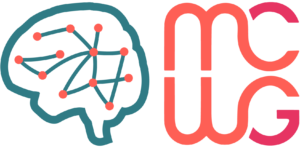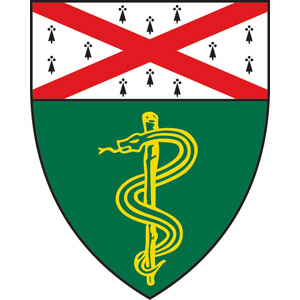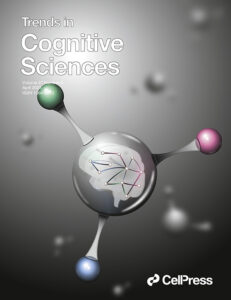
Greetings!
Many thanks to all who participated in our Roundtable on Molecular Imaging of Brain Connectivity at EANM24 in Hamburg! We are grateful for the excellent feedback from all attendees and the many thought-provoking questions during the discussion!



Thank you to everyone who attended our MCOS in October with Igor Yakushev, MD, who discussed findings related to test-retest reproducibility of structural, functional and molecular estimates of brain connectivity at rest.
We hope you will join us for our next MCOS on Friday, November 22nd, 2024, please note a change in time as it will be held at 22:00 AEST, 14:00 CET, 8:00 EST with Hamish Deery (University of Monash, Australia) who will discuss “Metabolic connectivity in ageing”. As a note, MCOS will be taking a brief hiatus in December.
Please find details and the registration link for the November MCOS below!
We are pleased to announce the next MCOS talk featuring Hamish Deery!
Date: November 22nd, 2024
Time: 22:00 AEST, 14:00 CET, 8:00 EST
Title: Metabolic connectivity in ageing
Please join us for this 30 minute presentation to be followed by discussion (~25 minutes).
Please register here.
Abstract: Information transfer across the brain has a high energetic cost and requires efficient glucose metabolism. Here we use recently developed high temporal resolution functional positron emission tomography (fPET) to create a time course of glucose metabolism for individual subjects and assess the relationship between metabolic connectivity and cognitive function in ageing. The metabolic connectomes of 40 younger (mean 27.9 years; range 20-42) and 46 older (mean 75.8; 60-89) adults were characterised by high connectivity in the frontal, temporal, motor, parietal and medial cortices. Older age was associated with lower global integration of metabolic hub regions. In younger adults, a high proportion of glucose was used to support hubs in the frontal regions. Older adults used a higher proportion of a smaller energy budget to support mostly posterior hub regions. This metabolic network topology of older adults was associated with worse cognitive performance. We conclude that ageing is associated with a high glucose cost in hub regions and disrupted information transfer across the metabolic network. Our results highlight the fundamental role that metabolism plays in supporting information transfer in the brain and the unique insights that metabolic connectivity provides into the ageing brain.

Hamish Deery is a Ph.D. candidate in the School of Psychological Sciences and the Cognitive Neuroimaging Lab led by A/Professor Sharna Jamadar at Monash Biomedical Imaging, Monash University, in Melbourne, Australia. His research interests are in understanding brain function and cognition across the adult lifespan, including unique and potential shared pathways in ageing and lifestyle diseases. His work includes the use of simultaneous functional PET and MR to investigate the impact of insulin resistance on cerebral gluose metabolism and cognition in mid- and later-life.
The MCOS promotes rigor in research and resource sharing. We aim to hold MCOS every third Friday of the month, subject to change due to speaker availability.
Please note, MCOS will be taking a brief hiatus in December and will return in the new year, please join us on January 17th at 15:00 CET, 9:00 EST:
Mary Catherine Catanese, PhD (Department of Psychiatry, Massachusetts General Hospital, Harvard Medical School) will discuss Epigenetic alterations in white matter with age: impacts on structural connectivity and beyond
Please stay tuned for updates and reminders on social media!
In case you missed it, our educational course and symposium from OHBM2024 are now online!
Please find the educational course here and symposium here.

1. The Bini Lab in the Yale PET Center is happy to announce a job offering for a postdoctoral associate. The Bini Lab focuses on preclinical and clinical PET/CT and PET/MR imaging for applications in diabetes and obesity. The primary project examines changes in the dopaminergic system in the pancreas and brain during diabetes using PET/CT and MRI. Several additional on-going studies include PET/MR/CT imaging in liver, adipose tissue, and brain during obesity.
Responsibilities involve working with preclinical animal models, preclinical and clinical PET imaging, image analysis, kinetic modeling, data analysis, and results dissemination. The ideal candidate will have some prior hands-on experience in preclinical PET/CT or PET/MR imaging and kinetic modeling. A PhD in biomedical engineering, physics, or a related field is required. However, interested candidates with a strong computational background and interest in getting involved in medical imaging and preclinical models are also strongly encouraged to apply. Any wet lab experience for ex vivo tracer validation studies is a plus.
The successful candidate will – based on their research interest – have the option of participating in other PET studies as well, for example, PET connectivity, image-derived input functions and/or low-dose PET simulations.
More info:
https://medicine.yale.edu/profile/jason-bini
https://medicine.yale.edu/pet

2. Dr. Arianna Sala, is happy to announce a job offering for the support of up to two current graduate students/research assistants with a background in neuroscience, medicine, engineering and related fields, interested in applying for a PhD position (2025-2029) at the University of Liége, Belgium on a project related to either:
(1) Positron Emission Tomography (incl. molecular connectivity) in disorders of consciousness;
(2) multimodal PET/MR/EEG imaging (including all flavours of connectivity) in healthy volunteers.
If interested, please reach out via email: arianna.sala@uliege.be by November 17th. Please attach your CV and a brief cover letter discussing your interest.
Candidates who obtained a Master’s degree in 2024 (or expecting to graduate in 2025) and interested in a traineeship of up to 12 months with the Erasmus+ program (open to EU and non-EU candidates) are also welcome to apply.
The MCWG Outreach Council invites you to submit announcements or information about papers, conferences, presentations or other events or news related to brain and molecular connectivity as well as any job opportunities that you wish to share with the community!
Please share for consideration by the final day of each month using this form.

The MCWG is made up of four international and multidisciplinary councils dedicated to promoting molecular connectivity research via dissemination of methods, results, collaboration, and resource sharing (e.g. datasets, tools) within the scientific community. We encourage the neuroscientific community to take an integrative perspective in study of the brain connectome, where various methods including MRI-based techniques, electrophysiological tools, and molecular imaging advance our understanding of the brain. Please find fundamental questions outlined here: “Brain connectomics: time for a molecular imaging perspective?”
Our website can be found here. We also invite you to join the MCWG!